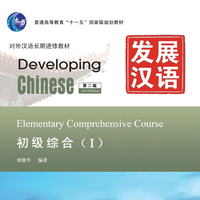16-2
16-2
16-2
16-2
16-2
16-2
16-2
16-2
16-2
16-2
16-2
汉娜 : 马丁 , 你 为什么 要学 汉语 ?
Hannah||||want to learn|
||||wilt leren|
Hannah: Martin, why do you want to learn Chinese?
马丁 : 我 以后 想 在 中国 工作 。
||in the future||||
|yo|después||||
Martin: I want to work in China in the future.
你 呢 ?
What about you?
汉娜 : 我 喜欢 旅行 , 会 说 汉语 , 在 中国 旅行 很 方便 。
|||||||||||praktisch
|||travel||||||traveling||convenient
|yo||viajar|||||||muy|conveniente
Hanna: Ich liebe es zu reisen und kann Chinesisch sprechen. Es ist sehr praktisch, in China zu reisen.
Hannah: I like to travel, speak Chinese, and travel in China is very convenient.
马丁 : 不会 汉语 也 能 在 中国 旅行 啊 。
|can't|Chinese|too||||travel|
|no|||||||
Martin: Man kann auch ohne Chinesischkenntnisse in China reisen.
Martin: I can travel in China without Chinese.
汉娜 : 当然 , 可是 会 汉语 可以 和 中国 人 聊天儿 , 了解 中国 , 了解 中国 文化 。
||||||||||verstehen||||
Hannah|of course||||||||chat|understand||understand||Chinese culture
||||||||||||begrijpen van||
||||||||||conocer||||
Hanna: Natürlich, aber wenn man Chinesisch kann, kann man mit den Chinesen reden, China und die chinesische Kultur verstehen.
Hannah: Of course, but Chinese can chat with Chinese people, understand China, and understand Chinese culture.
马丁 : 你 说得对 。
Martin||You are right
||je hebt gelijk
Sie haben Recht.
Martin: You are right.
汉娜 : 开始 学 汉语 的 时候 , 我 觉得 汉语 特别 难 。
Hannah|started||||||||especially|difficult
Hannah: When I started learning Chinese, I found Chinese to be particularly difficult.
马丁 : 是 啊 , 开始 的 时候 , 发音 不 容易 , 写 汉字 也 不 容易 。
||||||Aussprache||einfach|||||
|||beginning|||pronunciation||easy|writing||||easy
Martin: Yes, at the beginning, pronunciation is not easy, and writing Chinese characters is not easy.
Martín: Sí, al principio no era fácil pronunciar ni era fácil escribir los caracteres chinos.
汉娜 : 现在 会 汉语 了 , 我 觉得 不难 了 。
|||||||not difficult|
Hanna: Jetzt, wo ich Chinesisch kann, finde ich es gar nicht mehr so schwer.
Hannah: Now I will speak Chinese. I don't think it is difficult.

